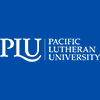Pacific Lutheran University is a private university with a profound historical heritage and unique educational characteristics. The following is a detailed introduction to it:
History:
The school was founded by Norwegian Lutheran immigrants in 1890. It was originally named Pacific Lutheran College. After several name changes, it was finally determined to be Pacific Lutheran University. Its early founders hoped that the school would help immigrants adapt to the new environment, find jobs, and train graduates to serve the church and the community.
Formal classes began in 1894, with only 30 students at the time. After years of development, the school has continued to grow and its influence in the field of education has gradually increased.
Academic Overview:
Professional Settings: It offers more than 40 undergraduate majors and graduate courses, covering a wide range of professional fields, including humanities, natural sciences, social sciences, business, education, nursing, sports and other disciplines. For example, majors such as computer science, engineering, biological sciences, education, music, and drama have high teaching quality and reputation. Among them, the engineering major is jointly taught with the famous Columbia University and the University of Washington. After graduation, students can obtain a double degree of "Bachelor of Science" and "Bachelor of Engineering".
Teaching quality: It has an excellent team of teachers, most of whom have doctoral degrees or have rich practical experience in their respective fields. The school adopts a small class teaching model with a teacher-student ratio of about 1:13, which enables teachers to better pay attention to the learning progress and needs of each student and provide personalized guidance and support for students.
Academic accreditation: The school's business school has been accredited by the Association to Advance Collegiate Schools of Business (AACSB), which is one of the highest accreditations for business schools worldwide, indicating that the quality and level of its business education have been internationally recognized.
Campus facilities:
Learning and Technology Center: It provides a good learning environment for disciplines such as mathematics, computer science and engineering, and business, equipped with advanced teaching equipment and technical support.
Observatory: It has a 16-inch Cassegrain reflecting telescope and a large digital camera and other equipment, providing students with opportunities for astronomical observation and research.
Library: The library has a rich collection of more than 260,000 books, more than 20,000 full-text journals, more than 7,000 e-books and more than 100 electronic databases, providing sufficient resources for students' study and research.
Concert Hall: The concert hall of the Music Center is well-equipped and has the largest organ in the western United States, providing a high-quality learning and performance venue for music students.
Geographical location: Located in Parkland, Washington, USA, it is only 7 miles from the center of Tacoma, the second largest city in the state, and only about 45 minutes from Seattle. The region has a mild climate and beautiful environment, providing students with a wealth of cultural entertainment and outdoor activities.
Student Life:
Extracurricular Activities: The school encourages students to actively participate in various club activities, sports activities, student-run media, etc. There are more than 60 clubs and societies for students to choose from, which enriches students' extracurricular life and cultivates students' leadership and teamwork spirit.
Accommodation conditions: The school has ten student dormitories, most of which are shared rooms. Each person has his or her own clothing storage, telephone and Internet access. The dormitory is equipped with a lounge, study room, public kitchen and laundry facilities, providing students with a comfortable and convenient living environment.
International Exchange and Cooperation: The school attaches great importance to international education and has established cooperative relations with many universities around the world, providing students with opportunities for overseas study, exchange and internship. At the same time, the school has also attracted students from 24 countries around the world to study, creating a multicultural learning atmosphere.
-

Harvard University
-

Massachusetts Institute of Technology
-

South University
-

University of West Georgia
-

Stanford University
-

Northwest Nazarene University
-

Hawaii Pacific University
-

Shorter University
-

Nova Southeastern University
-

Saint Leo University
-

Mesoamerican University
-

Istmo University
-

Mariano Galvez University of Guatemala
-

Regional University of Guatemala
-

Galileo University
-

Francisco Marroquín University
-

Rafael Landívar University
-

University of the Valley of Guatemala
-

University of San Carlos of Guatemala
-

Technological Institute of Tlaxcala Plateau
-

Golfo University
-

Technological University of South Sonora
-

Technological University of Huejotzingo
-

Tizimín Institute of Technology
-

Chilpancingo Institute of Technology

